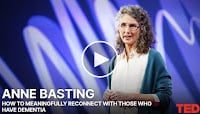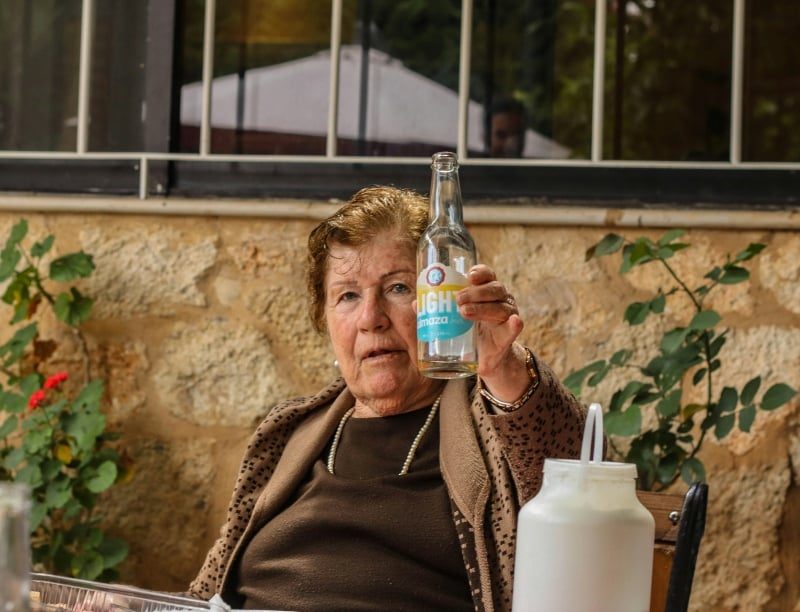It was the early morning hours, and I was trying to stop an 18-year-old man from jumping to his death.
I’d been called as a police officer to the man caught on CCTV staring over the edge of the parking lot. My colleagues stayed below to seal off the road and keep members of the public away. I went to the top.
What followed was the most stressful and emotional two hours of my life. When I arrived, the man was on the other side of a ledge, hanging on by one hand and leaning backward.
By the end of the two hours, he was back on the side of the living and on his way to get help. This is what I learned in those two hours on top of a dark parking lot.
. . .
1. The suffocating loneliness of night.
Suicide risk is higher at night than at any other time, according to this study. The correlation is so strong that increasing suicide prevention efforts between 2 and 3 am may help save lives. Treating conditions that keep people awake at night may also reduce the suicide risk by assisting them to sleep through the high-risk period.
Many of us can hide our anguish behind “doing things” in the day. It doesn’t matter what it is, but by doing something, you remain distracted and focused on the moment. You’re around other people who are also busy “doing.” You can convince everyone you feel ok — even yourself.
It’s different at night.
Everyone’s asleep. Silence is loud, and there’s nothing to “do” anymore. Many nights have I laid awake in bed at 4 am crying quietly as depression and fear engulf me from all sides.
Many of the most tragic mental health and suicide calls I’ve been on have occurred at night.
In the depths of darkness, people feel the innate loneliness of existence. They get a glimpse of what it’s like to be dead. To be swallowed by the nothingness.
. . .
2. This simple act of humanity could save a life.
When I first got to the scene and saw him on the wrong side of the ledge, hanging on by one arm and dangling over the edge, I was convinced we’d lose him to the concrete below.
But he came back. A man who was one of the most determined people to commit suicide I’ve ever met — who left his home at 2 am to walk to a desolate parking lot and climbed over the edge — came back when he felt he had a reason to live.
Stories like this are everywhere. Many come from San Francisco in the US and the world’s most infamous suicide hot spot — the Golden Gate Bridge. The dark allure of the bridge is so strong that people fly long distances to jump to their deaths in this deceptively beautiful place.
One man left a note saying he wouldn’t jump if one person smiled at him.
1300 people have jumped from the bridge. Only 35 have survived. Kevin Hines paced on the bridge for 40 minutes, trying to decide whether to jump. Eventually, he did, but realized he had made a terrible mistake on the way down. He later said that if someone had asked if he was ok, he would have begged for help instead.
The most dangerous myth about suicide is that those who are determined will find a way. In fact, many people can be helped, and kindness goes a long way. 515 people who were restrained from jumping from the bridge were part of a follow-up study 26 years later. 94% were either alive or dead from natural causes.
. . .
3. As long as you have this, you have a reason to live.
The man on the parking lot had no hope. Years later, I knew how he felt. I’d been medically retired with PTSD and was in the most acute agony from depression, with no hope of it ever getting better.
We can survive anything if we have hope things will get better. If you take it away, you take away life.
The key to bringing the young man back across the barrier was to give him hope. We talked about his family, possible help for him that he hadn’t tried, and the potential for him to go on to realize his dreams in the future.
I reasoned with him that if he was determined to kill himself one day, I couldn’t stop him, but wouldn’t he rather do that knowing he had exhausted all possibilities of happiness and recovery? What did he have to lose by trying one last time?
. . .
4. Just two guys talking about hard times above the abyss.
Although I was called to the parking lot because I was a police officer, I talked with the suicidal man as Leon. I removed my stab vest, undone by my utility belt, and put all markers of me as a police officer to one side. I greeted him with my first name and asked that, as much as possible, he thinks of me as just another man and not as a police officer.
The connection I built with him was genuine. He wasn’t just another job. His life mattered to me, and I told him so.
Lurking in the shadows was another police officer, ready to try to grab him as a last resort if all else failed. But he wasn’t needed.
We could have been two guys at a bar talking about hard times.
. . .
Never assume you know what someone is going through.
After this incident came to a wonderful conclusion, I went on to do other things. I dealt with a neighbor dispute about a wall, followed by some drunk teenagers.
None of these petty people knew what I had just been through. When the suicidal man went to the parking lot, I doubt his relatives had any idea about his plans.
When someone kills themselves, the regular refrain from friends and neighbors is that they seemed so happy and were “the last person I’d expect to do something like that.”
We never know what someone is dealing with; their behavior or appearance are not conclusive factors. Get used to asking your loved ones and friends how they are and listen for the answer. If you have any doubt about whether someone is suicidal, ask them. You won’t put the idea in their head, and it’s the only way to know.
. . .
Click here to join my Substack newsletter about recovering from mental illness, by a former police officer who has overcome PTSD, Depression, and Schizophrenia. Featuring regular Q&As from experts and survivors.
—
This post was previously published on Publishous.
***
You Might Also Like These From The Good Men Project
 Compliments Men Want to Hear More Often
Compliments Men Want to Hear More Often  Relationships Aren’t Easy, But They’re Worth It
Relationships Aren’t Easy, But They’re Worth It  The One Thing Men Want More Than Sex
The One Thing Men Want More Than Sex  ..A Man’s Kiss Tells You Everything
..A Man’s Kiss Tells You Everything Join The Good Men Project as a Premium Member today.
All Premium Members get to view The Good Men Project with NO ADS.
A $50 annual membership gives you an all access pass. You can be a part of every call, group, class and community.
A $25 annual membership gives you access to one class, one Social Interest group and our online communities.
A $12 annual membership gives you access to our Friday calls with the publisher, our online community.
Register New Account
Log in if you wish to renew an existing subscription.
Username
First Name
Last Name
Password
Password Again
Choose your subscription level
- Yearly - $50.00 - 1 Year
- Monthly - $6.99 - 1 Month
Credit / Debit Card PayPal Choose Your Payment Method
Auto Renew
Subscribe to The Good Men Project Daily Newsletter By completing this registration form, you are also agreeing to our Terms of Service which can be found here.Need more info? A complete list of benefits is here.
—
Photo credit: iStock
The post Talking Someone Out of Suicide Taught Me These 4 Things About Life appeared first on The Good Men Project.
Original Article










